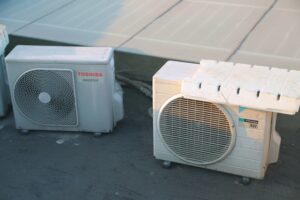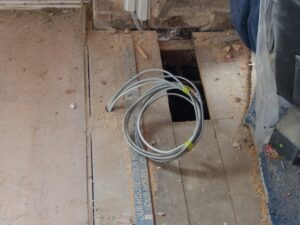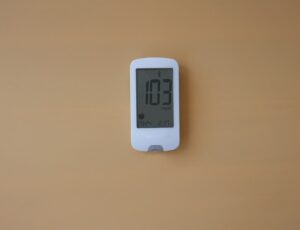Experiencing a delay in your heating system can be frustrating, especially when you’re trying to stay warm during colder months. The time it takes for heat to kick in can often be attributed to various factors, including thermostat settings, the age of your furnace, and system issues. Understanding these elements can help you troubleshoot the problem and restore comfort to your home.
Your thermostat plays a crucial role in how quickly your heating system responds. If it’s malfunctioning or set incorrectly, it may not signal the furnace to activate promptly. Additionally, an older furnace may struggle to produce heat efficiently. Any obstructions in the ducts or filtration systems can also hinder performance, causing extended wait times for your desired temperature.
At Excel Mechanical, we pride ourselves on providing exceptional HVAC and plumbing services to ensure your systems run smoothly. Our experienced professionals take the time to assess your heating needs and recommend the best solutions tailored to your unique situation. By addressing any heating delays effectively, we help you achieve comfort without compromise.
Understanding Your Heating System
A well-functioning heating system is essential for comfort during colder months. By familiarizing yourself with its components and operation, you can better appreciate why your system may take longer to heat your space.
Components of a Heating System
A typical heating system comprises several key components:
- Thermostat: This device regulates the temperature by sending signals to the heating system to turn on or off based on your settings.
- Furnace: In gas furnaces, natural gas is ignited to generate heat. Electric heaters use electrical resistance to produce warmth.
- Heat Exchanger: This component transfers heat from the furnace to the air or water circulating in your system.
- Blower: The blower moves warm air through ductwork or pushes water through radiators to distribute heat throughout your space.
- Radiators or Vents: These elements release heat into your rooms, ensuring even warmth.
Understanding these components helps you identify potential issues affecting performance and efficiency.
How Heating Systems Work
Heating systems operate by converting energy into heat, distributing it throughout your home.
- Thermostat Activation: When the room temperature drops below your desired level, the thermostat signals the furnace to start.
- Heat Generation: The furnace ignites the gas or uses electricity to produce heat, warming the heat exchanger.
- Airflow Movement: Once heated, the blower pushes air through the heat exchanger, which warms the air before it enters the duct system.
- Heat Distribution: Warm air travels through ducts to vents or radiators, raising the temperature in your rooms.
If your heating system is slow to respond, factors such as airflow obstructions, dirty filters, or an aging furnace could be to blame. Regular maintenance by experts like Excel Mechanical ensures your heating system operates efficiently. We are committed to exceptional quality and great value, tailoring solutions to meet your needs.
Common Issues and Troubleshooting
When your heating takes a long time to activate, several specific issues may be at play. Identifying these problems is key to resolving them efficiently and restoring comfort to your space.
Thermostat Problems
One common issue is a malfunctioning thermostat. If the thermostat is improperly calibrated or positioned, it may not accurately gauge the temperature, delaying furnace activation.
Check the settings first. Ensure the thermostat is set to heat and that the desired temperature is higher than the current room temperature.
Also, consider battery life; low batteries can lead to inconsistent readings. If the thermostat is old or doesn’t respond, it may be time for a replacement.
Ignition and Pilot Light Issues
Pilot light or ignition problems can also contribute to delayed heating. A pilot light that is out or a faulty ignition system can prevent the furnace from starting.
If the pilot light is extinguished, relight it according to your furnace’s manual. Make sure to check for draft issues that may keep it from staying lit.
If the ignition system is electric and not functioning properly, you may need a professional inspection. Excel Mechanical can address these ignition issues effectively to ensure reliable heating.
Furnace Filter Maintenance
A dirty or clogged furnace filter can significantly hinder airflow, affecting efficiency and the speed at which your heating system responds.
Check your filter monthly and replace it if it appears dirty or clogged. A clean filter promotes healthy airflow and can lead to quicker heating times.
Regular filter maintenance not only helps with heating efficiency but also improves air quality. Trust Excel Mechanical for regular maintenance and troubleshooting to keep your system running smoothly and efficiently.
Airflow and Air Quality
Proper airflow and air quality are essential for the efficient operation of your heating system. Issues like restricted airflow and dirty air filters can lead to longer heating times, impacting your comfort and increasing energy costs.
Effects of Restricted Airflow
Restricted airflow can significantly hinder the performance of your heating system. Common causes include blocked vents, furniture obstructing air pathways, or ductwork issues. When airflow is restricted, your furnace has to work harder to circulate warm air throughout your space.
This can lead to uneven heating, where some rooms remain cold while others become overly warm. The extra strain on your heating system can also result in higher energy bills and a shorter lifespan for the unit. Regular checks for blockages and ensuring proper ventilation can prevent these issues.
Importance of Clean Filters
Dirty air filters are one of the most common reasons for compromised air quality and airflow. When filters are clogged with dust, pollen, and other pollutants, they restrict airflow and reduce system efficiency. You should check and replace your furnace filter regularly, ideally every 1-3 months, depending on usage and filter type.
Clean filters not only improve airflow but also enhance indoor air quality, reducing allergens and other harmful particles. Excel Mechanical recommends a routine maintenance schedule to keep your system in top condition. Our commitment to quality ensures you receive exceptional HVAC services tailored to your specific needs.
Professional HVAC Maintenance
Maintaining your heating system is crucial to ensuring it operates effectively and efficiently. Regular HVAC maintenance not only extends the lifespan of your equipment but also prevents unexpected breakdowns. Knowing when to call a technician and understanding routine maintenance practices are key to optimal performance.
When to Call a Technician
You should contact a technician if your heating system exhibits unusual behaviors. These signs include:
- Extended Heating Time: If your furnace takes significantly longer to warm your home, it may be indicative of a problem. Clogged filters or issues with the thermostat could be to blame.
- Unusual Noises: Strange sounds like banging or screeching can signal mechanical issues that require professional attention.
- Inconsistent Temperatures: Fluctuating temperatures in different rooms may point to airflow problems or duct obstructions.
An experienced HVAC technician, such as those at Excel Mechanical, can diagnose the issue and recommend appropriate solutions.
Routine HVAC Maintenance
Regular maintenance is vital for keeping your heating system in top condition. Consider the following routine tasks:
- Filter Replacement: Change your air filter every 1-3 months to maintain proper airflow. Dirty filters restrict airflow, making your system work harder.
- Annual Inspections: Schedule a comprehensive inspection each year. This includes checking refrigerant levels, cleaning ducts, and testing the thermostat.
- System Cleaning: Ensure that both indoor and outdoor units are clean and free from debris. Clogged components can lead to reduced efficiency.
Choosing Excel Mechanical means you receive exceptional quality and value in HVAC and plumbing services, tailored to meet your needs and budget. Regular maintenance with professionals ensures your heating system operates efficiently, avoiding costly repairs later.
Safety Considerations
When dealing with heating systems, safety is paramount. There are several key factors to consider.
Gas Leaks If your system uses gas, be aware of potential gas leaks. These can lead to serious health hazards. Regular inspections by professionals like Excel Mechanical can help identify and mitigate these risks.
Gas Appliances Ensure that your gas appliances are functioning correctly. Malfunctioning appliances can pose safety risks. Regular maintenance checks can prevent issues, keeping your home safe.
Gas Valve Checks Regularly check the gas valve connected to your heating system. A malfunctioning valve can disrupt gas flow and create unsafe conditions. Have Excel Mechanical perform these checks to ensure reliability.
Circuit Breaker Status Your circuit breaker should always be in good condition. If your heating system takes too long to activate, check the breaker for any tripped switches. Restoring power promptly can prevent further complications.
Plumbing Considerations Heating systems often interact with plumbing. Leaks or blockage in pipes can affect heating performance. Ensure your plumbing is regularly maintained to avoid disruptions in your heating system.
Incorporating these safety measures will help maintain a secure and efficient heating system. Trust Excel Mechanical for professional HVAC and plumbing services, ensuring exceptional quality and value for both residential and commercial needs.




